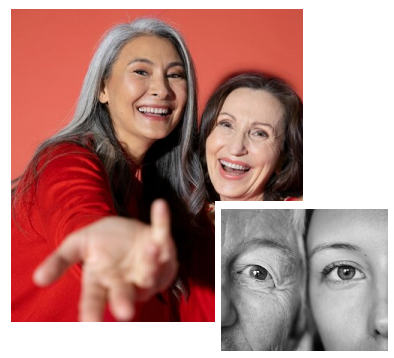- 788-8798-726
- Joplin, MO
- infoNEWAGINGPARADIGM@gmail.com

The formulation of a problem is often more essential than its solution…. To raise new questions, new possibilities, to
regard old problems from a new angle requires creative imagination and marks real advances in science.
-Albert Einstein

WELCOME TO
THE NEW AGING PARADIGM
In his 1962 book The Structure of Scientific Revolutions, Thomas Kuhn used the term “paradigm” to describe the set of preconceptions that serves as the
conceptual framework for a field of science. It’s what everyone knows to be true about a subject without even thinking about it. The paradigm determines how
scientists view the world and how they interpret observations. As a result, some phenomena are highlighted, while others are ignored. Most people, including
scientists, academicians, and visitors to this website, are not even aware of the perceptual limitations imposed by a paradigm.
From the dawn of human civilization, the aging paradigm has been a central conceptual framework for the life sciences. Among the things that “everyone
knows” to be true about aging are that young people are healthy and strong; older people suffer from progressive deterioration of strength, vitality and health. The
infirmities of aging are inevitable and irreversible. The biological changes that we experience with advancing chronological age are part of an aging process that
inevitably results in death. Not only humans, but all species are subject to comparable aging processes. Since all members of all species suffer from aging, it must
be a genetically inherited trait.
Here’s the glitch. Biological aging cannot be a genetically inherited trait. The fundamental principal of Darwin’s theory of evolution by natural selection is
that traits that decrease the likelihood of survival and reproduction are rejected. Under the aging paradigm, all humans (and all other species) are presumed to share
the most deleterious trait imaginable — progressively decreasing functionality in all physiological systems. Principles of natural selection tell us that that is
impossible. To be blunt, we need a new aging paradigm.
OVERVIEW OF THE WEBSITE
SIGN UP FOR MONTHLY UPDATES
An email you’ll always want to open.

